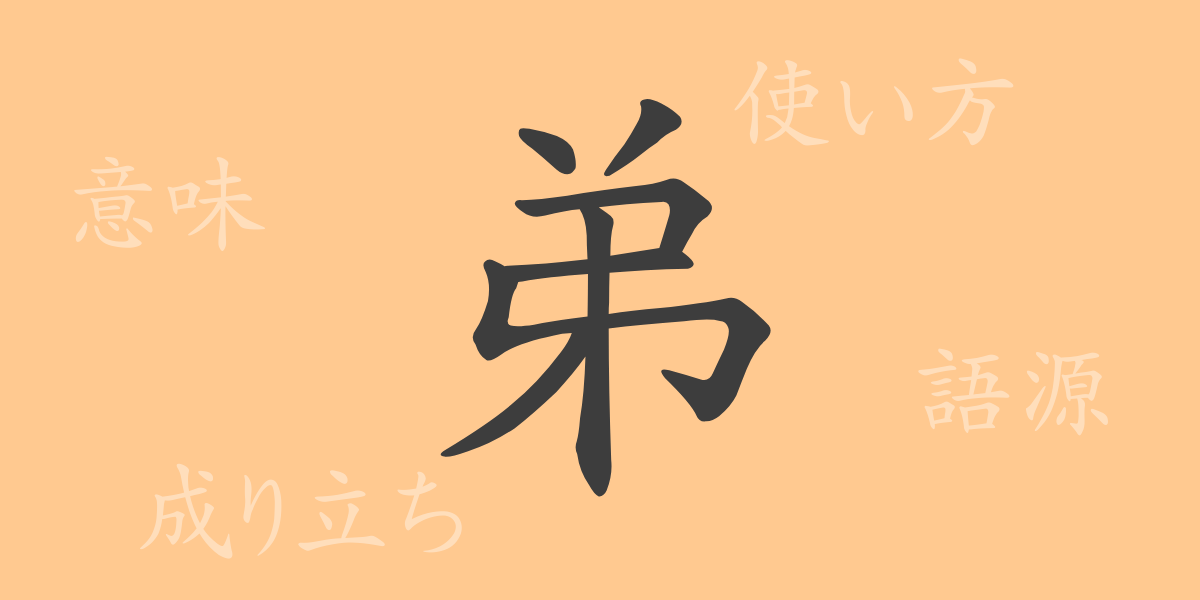In the rich tapestry of Japanese language, kanji symbols that represent family evoke special emotions. Among these, the kanji ‘弟(おとうと)’ holds a significant place, symbolizing the bonds between siblings. This article explores the charm of ‘弟’, tracing its origins to its contemporary usage, readings, and even the idiomatic expressions and proverbs that enrich its narrative. Let’s delve into the world of ‘弟’, a kanji integral to everyday Japanese life.
Origins of ‘弟(おとうと)’
The kanji ‘弟’ originated in ancient China, evolving from pictographs depicting two standing individuals. It later incorporated ‘糸(いと)’, a phonetic component suggesting the sound, and came to represent a younger brother in contrast to an elder. This character specifically denotes younger male siblings within the familial hierarchy.
Meaning and Usage of ‘弟(おとうと)’
‘弟’ primarily refers to a younger male sibling, immediately following an elder brother. Beyond this, it is affectionately used to refer to younger males or juniors, and metaphorically to describe something that is secondary or subordinate to another concept or entity.
Readings, Stroke Count, and Radical of ‘弟(おとうと)’
Understanding the readings and structure of ‘弟’ is crucial for proper usage:
- Readings: On’yomi (Sino-Japanese) readings are ‘テイ’ and ‘ダイ’, while the Kun’yomi (native Japanese reading) is ‘おとうと’.
- Stroke Count: ‘弟’ consists of 7 strokes.
- Radical: The radical is ‘弓(ゆみへん)’, which is associated with bow and archery but here contributes to the formation of the kanji.
Idioms and Phrases Using ‘弟(おとうと)’
The kanji ‘弟’ appears in numerous idioms and phrases that reflect the depths of the Japanese language:
- 弟切草(おとうとぎりそう): Literally a type of herb, this term is also metaphorically used to describe someone who would coldly betray even their brother to gain an advantage.
- 弟思い(おとうとおもい): A phrase describing an elder sibling’s deep care and affection for their younger brother, illustrating familial love.
- 兄弟仁義(きょうだいじんぎ): A term denoting the deep bond and moral code between siblings, reflecting mutual respect and responsibility in Japanese society.
Conclusion on ‘弟(おとうと)’
The kanji ‘弟’ transcends its literal meaning of a family member, encompassing broader social relationships and ethical values. The depth of meaning and the richness of expressions using ‘弟’ exemplify the beauty of the Japanese language. The kanji not only teaches us about the importance of sibling bonds but also about the value of human relations, continuing to engage people’s interest and reverence.

























